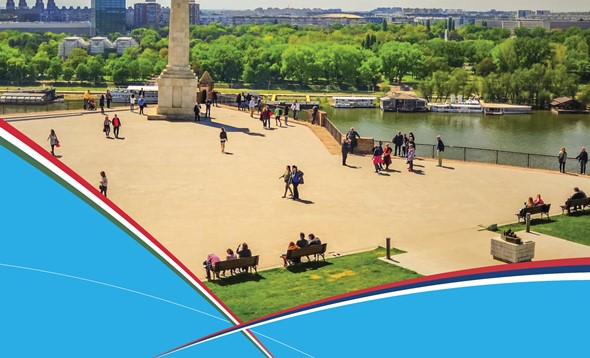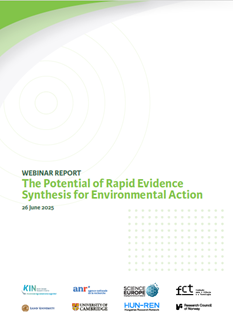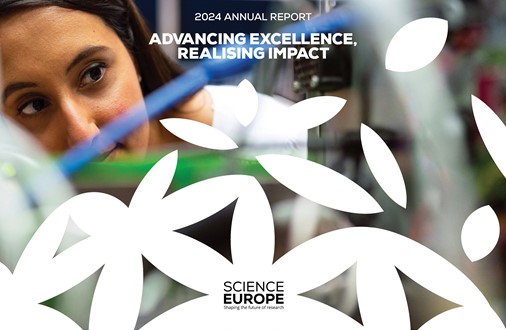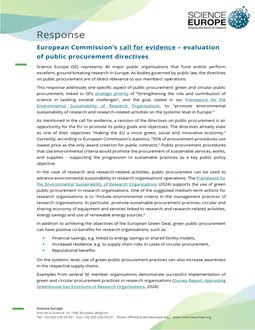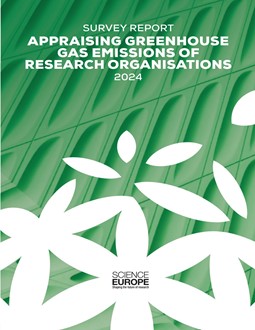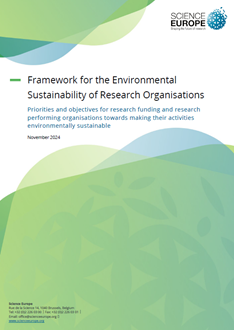
-
Share on
Science Europe participates in International Symposium on Life Sciences Meets Climate, Environment, and Sustainability
The Human Frontier Science Programme Organisation (HFSPO) organised a High-level Summit and International Scientific Symposium in Paris from 27–29 June, in partnership with UNESCO and other research institutions including ANR, CNRS, EMBL, ERC and the International Science Council (ISC).
Several heads of Science Europe Member Organisations and the Secretary General were involved in the programme of the High-Level Summit.
More than 60 high-level representatives reflected on their role in science policy and the link between life sciences (main area of funding by HFSPO) with other scientific disciplines to better address climate, environment, and sustainability challenges.
High-level Summit
Dame Ottoline Leyser, CEO of UK Research and Innovation (UKRI) provided an insightful plenary speech on the recent UKRI strategy to evolve towards more positive research environments, rewarding the quality of research over the quantity. This new strategy also fosters team research. She pointed out some of the inefficiencies of our current systems, such as the reductionist approach in research assessments – relying too much on quantitative indicators and not promoting enough collaboration. Besides, she insisted on the necessity to close the unhelpful segregation between basic and applied research, and to develop the use of scientific knowledge in policy development.
Representing the Science Europe Governing Board, Thierry Damerval, President and CEO of the French National Research Agency (ANR), spoke in the panel with heads of ‘international science policy funding and coordination organisations’, promoting main remarks from the work of Science Europe and its members on ‘science for policy’ and on ‘interdisciplinary research’. The panelists in the subsequent session, involving ‘national research funding and performing organisations’ were invited to indicate what would be their key priorities to concentrate future efforts on. The panel was co-moderated by HFSPO Vice-President Theresa Good and Science Europe Secretary General Lidia Borrell-Damián. Among the Members of Science Europe present in the session, Dame Melanie Welham, Executive Chair at URKI and member of the Science Europe Governing Board, highlighted how UKRI fosters connectivity among researchers and between researchers and society, coupled with fostering a diversity of researcher profiles and equipping them with skills such as critical thinking and resilience. For her part, Paula Eerola, President of the Research Council of Finland (AKA), addressed the need to establish research priorities that can generate the knowledge background to respond rapidly to possible crisis or emergencies.
From a research performing perspective, Antoine Petit, President of the French National Centre for Scientific Research (CNRS), highlighted the need for researchers to speak to communities other than scientists. That is, citizens, research policy makers, and politicians. From a research funders' perspective, Anne Kelso, CEO of the National Health and Medical Research Council (NHMRC) in Australia, also prompted funders to speak more and better to politicians who often do not understand the need to invest in research. Yoshinao Mishima, President of the Japanese Agency for Medical Research and Development (AMED), focused on dialogue between research, industry, and young researchers to make best use of research results, balancing curiosity-driven research and its applications with high ethical standards. Fulufhelo Newalmondo, CEO of the National Research Foundation (NRF) of South Africa emphasised that collaborations and care for early-career researchers were essential in countries on their way to raise up their research capacity, such as South Africa.
UNESCO Deputy Director-General Xin Qu advocated to reinforce ‘science’ as a public good and invited all participants to consider science as a ‘meeting place’, enabling environments for scientists to tackle research questions beyond geopolitical constraints. At the end of the Summit day, the efforts on alignment research policies by the Global Research Council were commended.
International Scientific Symposium
The International Scientific Symposium, on 28 and 29 June, brought together many scientists engaged in life sciences research worldwide. Through their respective scientific insights, a series of common messages emerged. First of all, it was reckoned that interdisciplinary research needs more support to make it the norm and not the exception. Secondly, emphasis on human skills – such as critical and creative thinking, networking, engagement and capacity for collaboration – are more important than ever.








